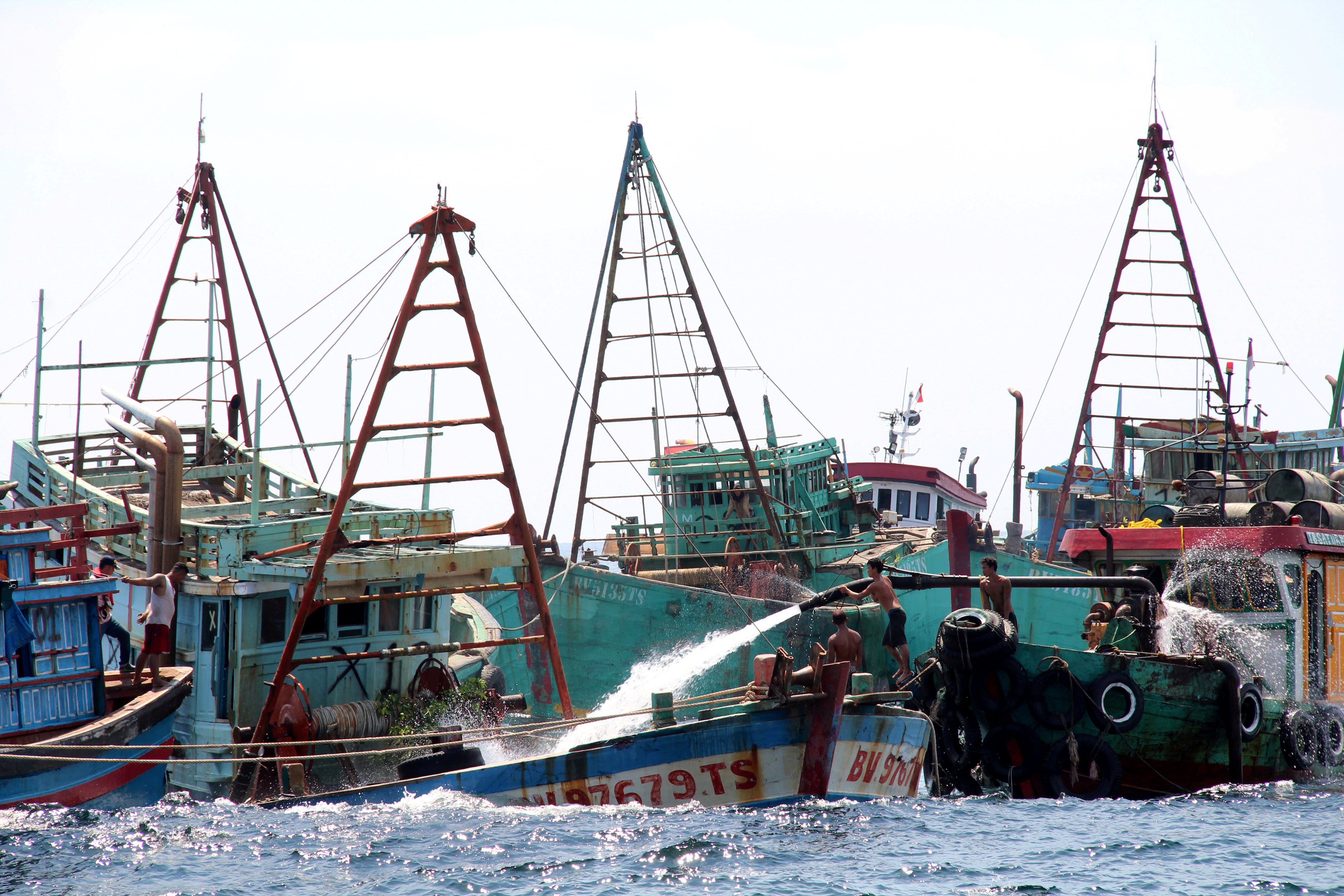Countries fail to agree deal to curb overfishing of world’s oceans
Campaigners have warned that a lack of progress on tackling illegal, unreported and unregulated fishing will worsen the ‘crisis facing our oceans’, writes Tom Batchelor


Negotiators from the World Trade Organisation (WTO) have failed to agree on a plan to cut subsidies that lead to overfishing, in what campaigners have called a disappointing delay which will worsen the “crisis facing our oceans”.
The chairman of the talks, Santiago Wills, blamed delays linked to Covid-19 for the lack of a deal to eliminate grants for illegal, unreported and unregulated fishing.
World leaders committed in 2015 to a series of UN targets including a deal that should have been finalised by the end of 2020 on ending government subsidies worth billions of dollars.
Grants helping fishing fleets pay for fuel, which encouraged large industrial vessels to travel far out to sea, often resulting in overfishing while also making it harder for small-scale fishing crews to thrive, were among those being targeted.
Some members had sought exemptions for their waters which other delegates said would defeat the purpose of a subsidy ban as most fish are caught in those same territorial zones.
China, the European Union, the United States, South Korea and Japan are among the main subsidisers, and negotiators had offered less stringent rules for developing countries.
The failure to agree a deal is a major blow to the world's fish stocks, which have been in steep decline in recent decades.
The UN food agency has said that nearly 90 per cent of marine fish stocks are fully exploited, overexploited or depleted.
It is estimated that currently 34 per cent of global stocks are overfished, compared with 10 per cent in 1974.
The pace of decline in fish stocks was fastest between 1976 and 1990, and while the decreasing trend has stabilised since 2008, the UN said there was still no obvious progress on a global level.
Will McCallum, head of oceans at Greenpeace UK, told The Independent: “The WTO had a chance this year to cut the harmful government subsidies which underwrite and fuel so much of the destructive industrial overfishing of our oceans.
“This has driven many fish populations to the brink of collapse, threatening the long term health of our oceans and their ability to provide sustenance and livelihoods to billions of people around the world.
“It’s disappointing that governments have failed to agree to cut these harmful subsidies, and delayed making difficult but necessary decisions until next year. While they delay, the crisis facing our oceans will only get worse.”
WTO negotiations on fisheries subsidies were launched in 2001, and critics said failure on Monday to reach a deal after almost two decades of discussions raised questions over the ability of the WTO to strike multilateral agreements.
“It is disappointing,” said Remi Parmentier, a strategic adviser for Friends of Ocean Action, which has been an environmental advocate at the WTO for two decades.
“They have had 20 years to fix it and on certain issues they are still almost at square one.”
Mr Wills, chair of the WTO negotiating group, said last month while talks were still ongoing: “It is important to be reminded of the perilous state of the world's fish stocks, which jeopardizes the livelihoods of some 39 million people around the world who are dependent on capture fisheries.
“These are unquestionably very complex and sensitive issues, and these are very challenging times in which to pursue such an ambitious negotiating agenda, as Covid-19 related restrictions have required major changes to how we conduct our business.
“I am very pleased that in spite of these challenges, all WTO members are remaining deeply and substantively engaged, and are maintaining a clear commitment to a meaningful outcome.
“The end is in sight for these negotiations. We have an opportunity, not to be missed, for the world to come together and exercise our collective responsibility for our precious fisheries resources, for the good of the ocean and of the fisherfolk that rely on it.”
The WTO declined to comment when contacted by The Independent.


Join our commenting forum
Join thought-provoking conversations, follow other Independent readers and see their replies
0Comments